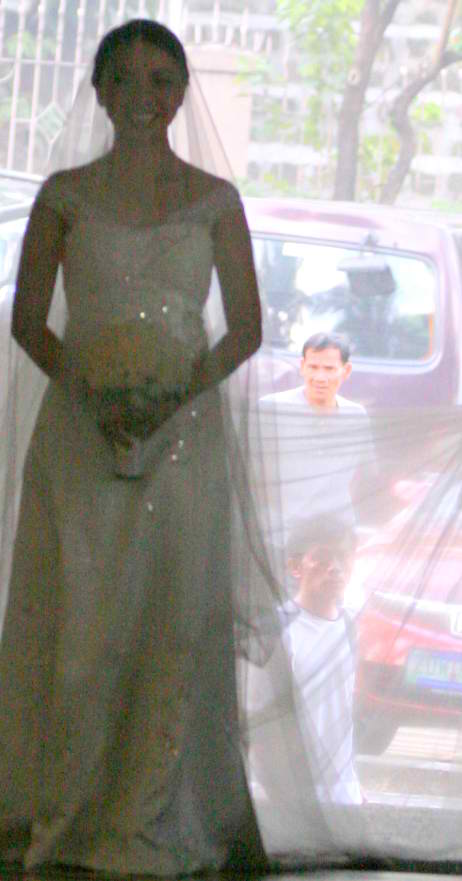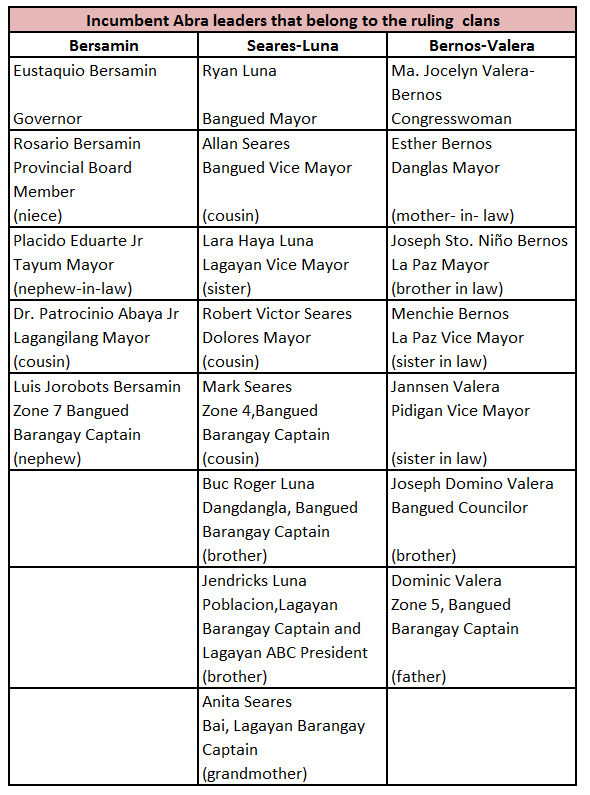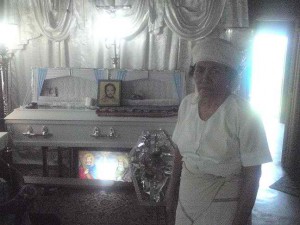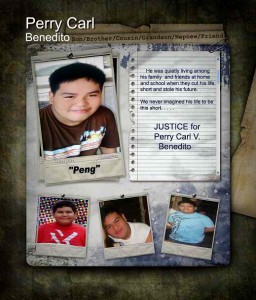By ARTHA KIRA PAREDES
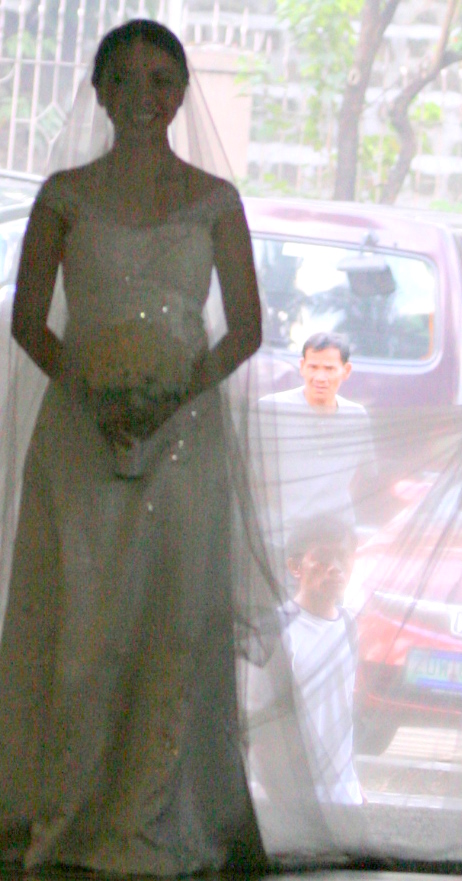
BANGUED, Abra.—Five years ago today, the then highest-ranking politician of Abra province was shot dead outside a church in Quezon City in broad daylight, signaling the fall of one of Abra’s most prominent families and the rise of other political dynasties.
The killing also ushered in a period of intensified violence that has made the province one of the country’s most dangerous places, its capital Bangued the so-called “murder capital of the north.”
The slain politician was Rep. Luis Bersamin Jr., who was shot in the head after standing as one of the principal sponsors at his niece’s wedding at the Mount Carmel Church in New Manila on Dec. 16, 2006.
Charged and arrested for his murder was his erstwhile childhood friend and ally Vicente Valera, who has been behind bars since September 2009 and is facing trial at the Branch 94 of the Regional Trial Court in Quezon City. Valera has entered a plea of “not guilty.”
It is popular belief now that had Bersamin lived, it would have been impossible for many of Abra’s ruling politicians to enter politics.
Valera lost in the congressional race the following year, ending a 20-year political career. His wife, Ma. Zita Claustro-Valera, also lost her bid to become governor. With the Valeras out of the way—Vicente was the perceived mastermind of Bersamin’s assassination and also had a falling out with then incumbent president Gloria Macapagal-Arroyo—it became easy for other clans to enter public office.
‘Cong Chito’
Months before his death, Bersamin had announced his plans to run for governor in the May 2007 elections.
Known to his family, friends and constituents as “Chito,” he was born on March 15, 1944 to former Abra governor and military doctor Luis Bersamin Sr. and teacher-pharmacist Rosario Bersamin.
He first entered politics in 1988 as Bangued mayor, and would stay in that position for a decade. Constituents described his rule as “peaceful,” because he would work with the police in solving crimes, calling on political leaders of barangays where incidents happened.
That period is a stark contrast to Bangued’s image now as unsafe and dangerous. In the first half of 2011 alone, police records show that a shooting incident occurred almost every three days with most of these happening in the capital. Among the casualties from January to May this year were 14-year-old Perry Carl Benedito and Rose Vivienne Paet who was reportedly pregnant when she was shot.
After his stint as mayor, Bersamin ran for vice governor and won, and then got elected representative of Abra’s lone district.
Bersamin was known to be approachable. That he could remember names and faces very well helped endear him to Abrenians. He was well connected and had friends in the military, police and national government agencies. He was a good friend of President Benigno S. Aquino III, then a senator, who was said to have cried at his wake at Funeraria Paz.
Power shift
With Bersamin’s death, his younger brother Eustaquio stepped into his shoes and ran as governor of Abra in 2007, winning handily because of the famous last name and sympathy votes.
Despite being governor for two terms now, Eustaquio has maintained a relatively low profile compared to other political figures who filled the void left by his brother and the Valera couple.
One of them is Cecilia Seares-Luna who replaced Bersamin as representative of Abra’s lone congressional district. A former mayor of Lagayan town, Seares-Luna had said in 2005 that she would not aspire for a higher post. Likewise, her second cousin, Dominic Valera, became Bangued mayor in 2007, after a failed attempt in 2004.
Seares-Luna also comes from a political family. Her uncle is Petronilo Seares, who was Abra governor in the 1960s. Her mother Anita had been Lagayan mayor for several terms before Cecilia took over in 1998 and was reelected in 2001.
Meanwhile, Dominic Valera’s wife Mila was Bangued vice mayor while his daughter, incumbent representative Ma. Jocelyn Valera-Bernos, was Sangguniang Kabataan chair in the 1990s before winning a seat in the Sangguniang Panlalawigan in 2007. Dominic ran for mayor of Bangued thrice—in 2004, 2007 and 2010—and won only on his second try.
Allegations of vote padding and shaving surrounded the victories of both Cecilia Seares-Luna and Dominic Valera in the 2007 elections, with Vicente Valera even filing before the Supreme Court a protest over Luna’s win. Nothing came of the case, and the two completed their three years in office.
Since gaining political power, the families of Cecilia Seares-Luna and Dominic Valera have dominated Abra. The two political leaders and their followers were once allies, but this alliance was short-lived. In the 2010 elections, members of both families fought for the coveted positions of representative and Bangued mayor.
Alliance and estrangement
Cecilia Seares-Luna and Dominic Valera were still allies in 2004 when they were trying to woo Bersamin to join them as part of an opposition bloc and run against either Vicente Valera or his wife Ma. Zita. They wanted Bersamin to break his ties with the Valera couple, who were then being branded as “conjugal dictators.”
But Bersamin instead supported the candidacies of the Valera couple and was heard over the radio endorsing Vicente for governor and Ma. Zita for Bangued mayor days before the 2004 elections.
It would later be revealed that Bersamin and the Valera couple signed a covenant of peace on Jan. 31, 2004 with majority of the mayors and several Sangguniang Panlalawigan as witnesses.
The covenant promoted a status quo in 2004, but stated that by 2007, Bersamin would endorse Ma. Zita as congresswoman, while Ma. Zita was to endorse Bersamin as Bangued mayor.
It also said that as “responsible leaders of Abra,” they were committing to “uphold and maintain” the covenant of unity.
In an affidavit executed on May 19, 2008, Bersamin’s brother and Supreme Court Justice Lucas Bersamin explained that the agreement was based on a handwritten covenant he wrote when he and his brother met with the couple on Dec. 30, 2003.
It was then that they agreed to let Bersamin run for a second term with the promise to forego his third and last term in Congress.
According to Lucas’ affidavit, Vicente was “bent” on having his wife run for Congress in the 2004 elections and the couple were “pressuring” his brother to run for Bangued mayor instead.
“(M)y late brother assured that he was ready for an electoral confrontation with Gov. Valera’s wife and was confident of soundly beating her but that most of the municipal mayors of Abra did not favor a confrontation, if it could be avoided, because the elections could turn bloody among the followers of both camps,” his affidavit read.
According to Lucas, the “political alliance” between his brother and Valera continued after they all won the 2004 elections, “but their personal relations were, at best, lukewarm.”
The relationship between the two “became more strained at the end of October 2006 or early part of November 2006 after my late brother publicly announced his intention to run for governor of Abra against Gov. Valera,” his affidavit read.
Open end
Today, people close to Bersamin speculate that had he survived, he would still not ally himself with the Seares-Lunas and Valera-Bernoses. A confidante even said the late representative “did not trust them.”
Cecilia and her children Jendricks and Lara Haya are currently facing charges of plunder.
Rep. Ma. Jocelyn Valera- Bernos and her family, on the other hand, are being accused of demanding as much as 40 percent of the total amount of national infrastructure projects although no formal complaint has been filed. Recent records released by the House of Representatives also show that she is one of the chamber’s top two absentees.
Five years ago, many believed Bersamin’s winning as governor would not only put an end to Valera’s regime but restore peace in Abra. Back then, most of the political killings were being blamed on Valera and the only known opposition was the alliance composed of the Valera-Bernos and Seares-Lunas clans.
With Valera out of the picture, Abrenians ask, who should be blamed for all the killings now. And with Bersamin dead, many wonder, who actually benefited from his death?
